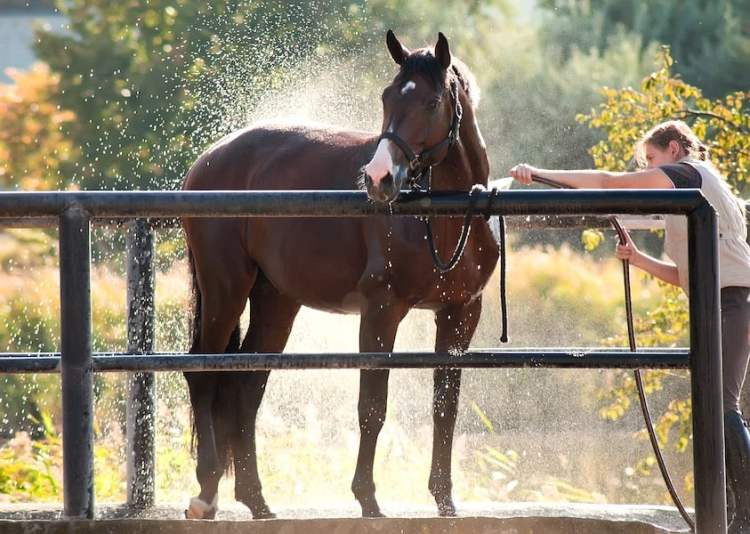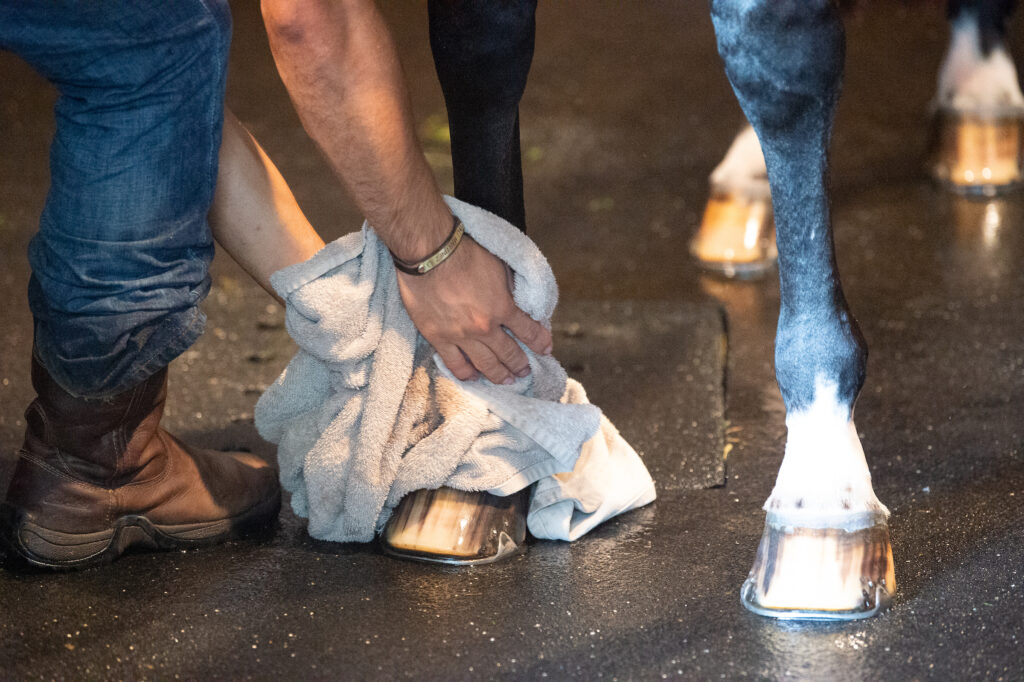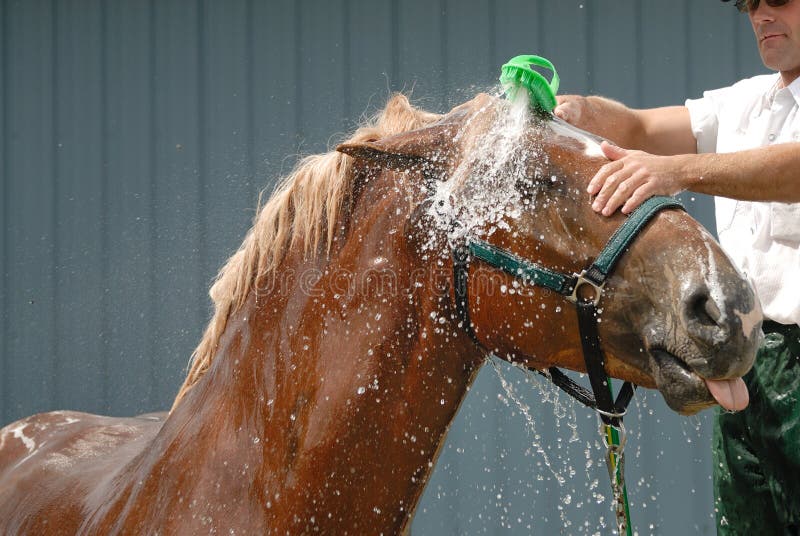The question on every horse owner’s mind is, Are whitening shampoos safe for horses? As equine enthusiasts, ensuring the well-being of our four-legged friends is paramount. Whether preparing for a show or maintaining everyday hygiene, it’s important to understand the implications of using whitening shampoos on horses.
Whitening shampoos are specially formulated to enhance the brightness of a horse’s coat, primarily used on light-colored or white horses. While these products promise a dazzling appearance, their safety and effectiveness remain under scrutiny. In this article, we delve into the benefits and potential risks associated with their use, to help you make informed decisions for your horse’s grooming routine.

The Purpose of Whitening Shampoos
Whitening shampoos are designed to remove stains and enhance the natural shine of a horse’s coat. They often contain optical brighteners and bluing agents that neutralize yellowing and bring out the whiteness of the coat. For those participating in shows or competitions, a white horse with a pristine coat can make a significant impression.
Ingredients to Watch Out For
Understanding the ingredients in whitening shampoos is crucial. Many contain detergents and chemicals that can strip the coat of its natural oils, leading to dryness and irritation. Common ingredients include sodium lauryl sulfate (SLS), optical brighteners, and bluing agents. These components may cause allergic reactions or skin irritations in sensitive horses.
Potential Risks of Whitening Shampoos
While the promise of a sparkling coat is enticing, there are potential risks involved. Overuse of whitening shampoos can lead to dry skin, irritation, and even hair breakage. It’s essential to monitor your horse’s skin and coat condition after using these products and to discontinue use if any adverse reactions occur.
Alternatives to Whitening Shampoos
For those concerned about the potential risks, consider natural alternatives. Products with gentle, natural ingredients like aloe vera, chamomile, and coconut oil can offer cleansing benefits without the harsh effects. Additionally, regular grooming practices like brushing and rinsing can maintain a clean and healthy coat.
Choosing the Right Product
When selecting a whitening shampoo, consider products specifically formulated for horses. Look for shampoos that are pH-balanced and free from harsh chemicals. Always conduct a patch test before full application to ensure your horse does not have an adverse reaction.
Application Tips for Best Results
Proper application is key to achieving the desired results without harming your horse. Dilute the shampoo with water, work it into a lather, and rinse thoroughly to avoid residue build-up. Be cautious around sensitive areas like the eyes and ears.
Understanding Horse Skin Sensitivity
Horses have sensitive skin that requires careful attention. Unlike humans, their skin has a different pH level, making them susceptible to irritation from products not specifically designed for them. This sensitivity underscores the importance of choosing appropriate grooming products.
Signs of Adverse Reactions
Be vigilant for signs of adverse reactions such as redness, itching, or hair loss. These symptoms may indicate an allergic reaction or sensitivity to the shampoo. If you observe any of these signs, discontinue use and consult a veterinarian.
Consulting with Experts
If you’re unsure about using whitening shampoos, consult with equine grooming experts or veterinarians. They can provide valuable insights and recommend products suitable for your horse’s unique needs.
Maintaining a Balanced Grooming Routine
A balanced grooming routine is essential for your horse’s health and appearance. Incorporate regular brushing, hoof care, and coat maintenance to ensure overall well-being. For more tips on maintaining a healthy grooming routine, visit Equi Spa.
Hydration and Nutrition’s Role
Hydration and nutrition play a significant role in maintaining a healthy coat. Ensure your horse has access to clean water and a balanced diet rich in essential nutrients. Proper nutrition supports skin health and enhances the natural shine of the coat.

FAQs about Whitening Shampoos
Are there natural alternatives to whitening shampoos?
Yes, natural alternatives like aloe vera and chamomile-based shampoos can provide gentle cleansing without harsh chemicals.
How often should I use whitening shampoo on my horse?
It’s best to use whitening shampoo sparingly, only when necessary, such as before a show. Overuse can lead to dry skin and irritation.
What should I do if my horse has a reaction to whitening shampoo?
If your horse shows any signs of irritation or allergic reactions, discontinue use immediately and consult with a veterinarian.
For additional insights and tips on horse grooming, consider exploring resources like Horse Shampoo Tips and Grooming Tips for more detailed guidance.
This article contains affiliate links. We may earn a commission at no extra cost to you.








